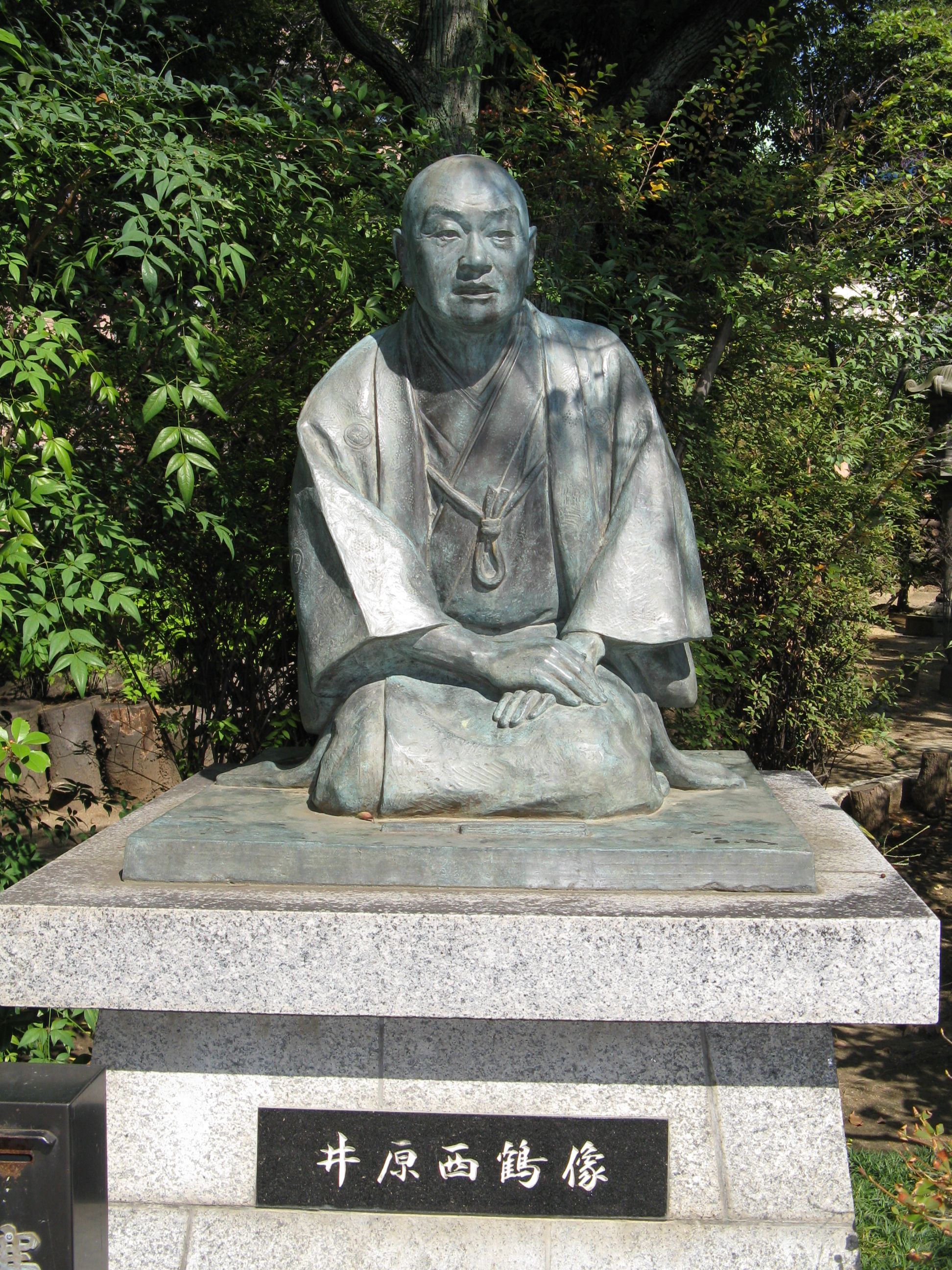“Take care! Kingdoms are destroyed by bandits, houses by rats, and widows by suitors.”
Book I, ch. 5.
The Japanese Family Storehouse (1688)
Ihara Saikaku was a Japanese poet and creator of the "floating world" genre of Japanese prose .
Born as Hirayama Tōgo , the son of a wealthy merchant in Osaka, he first studied haikai poetry under Matsunaga Teitoku and later studied under Nishiyama Sōin of the Danrin school of poetry, which emphasized comic linked verse. Scholars have described numerous extraordinary feats of solo haikai composition at one sitting; most famously, over the course of a single day and night in 1677, Saikaku is reported to have composed at least 16,000 haikai stanzas, with some sources placing the number at over 23,500 stanzas.Later in life he began writing racy accounts of the financial and amorous affairs of the merchant class and the demimonde. These stories catered to the whims of the newly prominent merchant class, whose tastes of entertainment leaned toward the arts and pleasure districts.
Wikipedia

“Take care! Kingdoms are destroyed by bandits, houses by rats, and widows by suitors.”
Book I, ch. 5.
The Japanese Family Storehouse (1688)
“Like ice beneath the sun's rays — to such poverty did he fall…his fortune melted to water.”
Book III, ch. 5.
The Japanese Family Storehouse (1688)
“Harshness is for the good of a boy, soft-heartedness will ruin him.”
Book V, ch. 5.
The Japanese Family Storehouse (1688)
“If we live by subhuman means we might as well never have had the good fortune to be born human.”
Book III, ch. 4.
The Japanese Family Storehouse (1688)
“Ancient simplicity is gone…the people of today are satisfied with nothing but finery.”
Book I, ch. 4.
The Japanese Family Storehouse (1688)
Book I, ch. 1.
The Japanese Family Storehouse (1688)
“The first consideration for all, throughout life, is the earning of a living.”
Book I, ch. 1.
The Japanese Family Storehouse (1688)
“Though mothers and fathers give us life, it is money alone which preserves it.”
Book I, ch. 1.
The Japanese Family Storehouse (1688)
“In life it is training rather than birth which counts.”
Book I, ch. 3.
The Japanese Family Storehouse (1688)
“To think twice in every matter and follow the lead of others is no way to make money.”
Book II, ch. 5.
The Japanese Family Storehouse (1688)
What the Seasons Brought to the Almanac-Maker (1686).
“To make a fortune some assistance from fate is essential. Ability alone is insufficient.”
Book III, ch. 4.
The Japanese Family Storehouse (1688)
Book III, ch. 1.
The Japanese Family Storehouse (1688)
“There is always something to upset the most careful of human calculations.”
Book II, ch. 2.
The Japanese Family Storehouse (1688)
Book II, ch. 5.
The Japanese Family Storehouse (1688)
“If making money is a slow process, losing it is quickly done.”
Book III, ch. 5.
The Japanese Family Storehouse (1688)